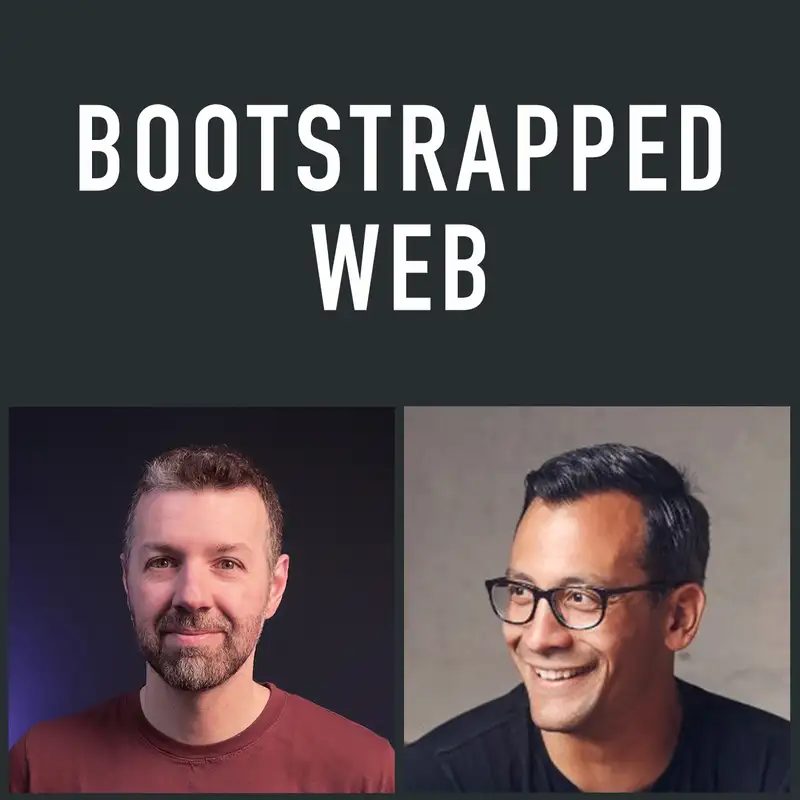Era of Trying Stuff
Yet another new product announcement from Brian. Jordan launches to first customers. The era of hacking on new ideas. Summer speed ups. Professional standards. Vacations. Special guest joins us to tell us it's time to stop.
Connect with Jordan:
Jordan's company, Rosie
Jordan on Twitter: @jordangal
Jordan on Threads: @jordangal
Connect with Brian:
Brian's newest thing: Ripple.fm
Brian's Service: Tailor-Made UI
Brian's SaaS, Clarityflow
Brian on Twitter: @casjam
Brian on Threads: @brian.casel
Yet another new product announcement from Brian. Jordan launches to first customers. The era of hacking on new ideas. Summer speed ups. Professional standards. Vacations. Special guest joins us to tell us it's time to stop.
Connect with Jordan:
- Jordan's company, Rosie
- Jordan on Twitter: @jordangal
- Jordan on Threads: @jordangal
Connect with Brian:
- Brian's newest thing: Ripple.fm
- Brian's Service: Tailor-Made UI
- Brian's SaaS, Clarityflow
- Brian on Twitter: @casjam
- Brian on Threads: @brian.casel
